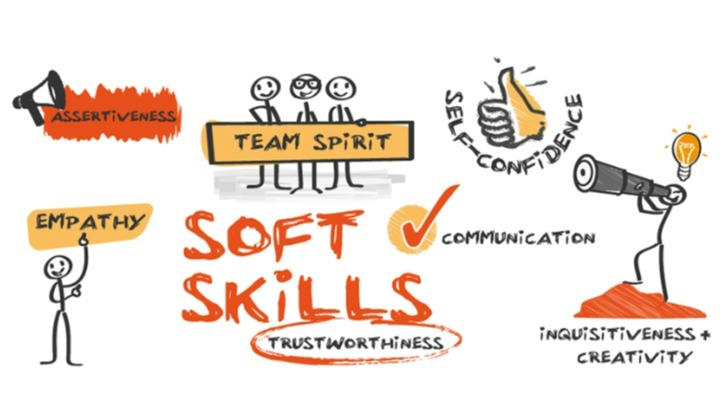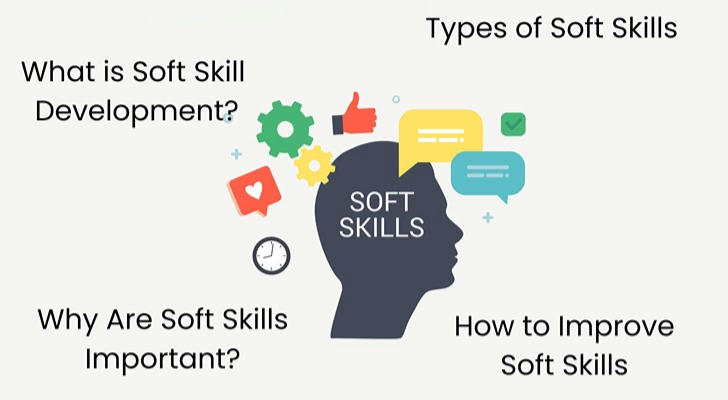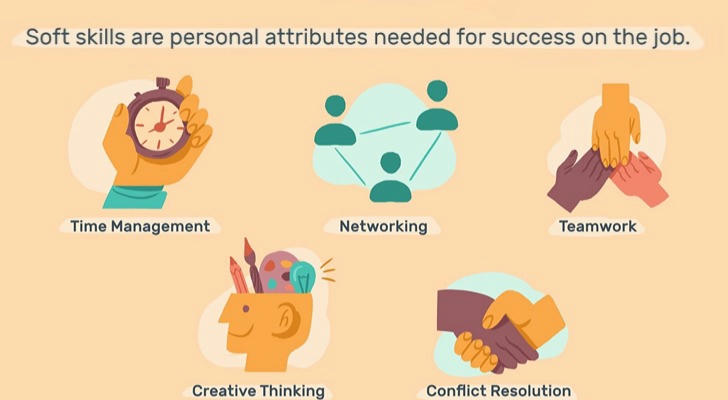Modern Workplace Essential Soft Skills: Important Training
In today’s fast-paced, ever-changing work environment, technical skills alone are not enough to ensure success. What truly sets professionals apart are soft skills—those personal attributes and interpersonal abilities that help you communicate, collaborate, and adapt. This article explains why investing in soft skills training is vital, highlights the most important soft skills, and shows you practical ways to develop these essential capabilities to boost your career.

The Critical Role of Soft Skills in the Modern Workplace
Soft skills are the non-technical skills that help you work effectively with others, solve problems, and manage your time. In an era where many tasks are automated or outsourced, the ability to connect with colleagues, clients, and managers becomes a top priority. Research by the Association for Talent Development (ATD) has found that companies that invest in soft skills training see significantly higher productivity and profitability. These skills—such as communication, teamwork, and adaptability—are no longer “nice to have”; they are critical for career advancement and job security.
Employers now rank soft skills as highly as technical skills. Whether you’re negotiating a contract, leading a team, or simply interacting with a customer, soft skills enable you to navigate challenges more smoothly. In fact, surveys have shown that 85% of job success comes from having well-developed soft skills, while only 15% is attributed to technical knowledge. This statistic alone underscores why targeted training in these areas is essential.

Key Soft Skills for Success and How to Train Them
1. Effective Communication:
Clear communication is the foundation of all successful work relationships. This includes not only speaking and writing clearly but also active listening and understanding non-verbal cues. Training in public speaking, presentation skills, and even storytelling can improve how you convey your ideas. Role-playing exercises and communication workshops are practical methods to refine these skills.
2. Teamwork and Collaboration:
Modern workplaces are team-oriented. Whether working in a project team or collaborating across departments, the ability to work well with others is essential. Soft skills training that focuses on group dynamics, conflict resolution, and collaborative problem-solving can help build a cohesive team spirit. Participating in group projects, team-building activities, and cross-functional training sessions can enhance your ability to contribute positively to team efforts.
3. Adaptability and Flexibility:
Change is constant in today’s job market. Being able to adapt to new challenges, technologies, and processes is a significant advantage. Training that centers on change management, agile methodologies, and creative problem-solving can help you stay resilient. Courses and workshops that simulate real-life scenarios enable you to practice adapting under pressure, ensuring you remain effective even in uncertain situations.
4. Emotional Intelligence (EQ):
Emotional intelligence is the ability to understand, use, and manage your own emotions positively, and to empathize with others. High EQ helps you resolve conflicts, lead teams, and maintain a productive work environment. Training in emotional intelligence often involves self-awareness exercises, mindfulness practices, and feedback sessions, all of which can lead to improved workplace relationships and personal well-being.
5. Time Management and Organization:
In today’s world, where the pace is relentless, managing your time efficiently is crucial. Soft skills training in time management involves learning techniques such as prioritizing tasks, setting realistic goals, and using tools like the Pomodoro Technique. Workshops and interactive sessions can provide you with practical strategies to minimize distractions and maximize productivity.
6. Problem-Solving and Critical Thinking:
The ability to analyze situations, think critically, and come up with innovative solutions is highly valued. Training that focuses on these skills often uses case studies, group discussions, and simulations to challenge your thinking and help you develop a methodical approach to solving problems. This training not only makes you more effective at your job but also prepares you for leadership roles.

Practical Methods for Soft Skills Training
Developing soft skills is a continuous process that benefits from a mix of formal training and real-world practice. Here are some practical methods to enhance your soft skills:
Workshops and Seminars:
Attending interactive workshops provides a hands-on approach to learning soft skills. These sessions often include role-playing and group exercises, which help you practice and receive immediate feedback.
Online Courses and Webinars:
With the rise of e-learning, numerous platforms offer courses on communication, leadership, and time management. These courses allow you to learn at your own pace and fit training into your busy schedule.
Mentoring and Coaching:
One-on-one mentoring can provide personalized guidance tailored to your specific strengths and weaknesses. A mentor or coach can offer invaluable insights and help you navigate challenges as you develop your soft skills.
Team-Building Activities:
Engaging in team-building exercises—both in-person and virtual—can improve your collaborative skills. Activities that encourage problem-solving and effective communication help build trust and understanding among team members.
Self-Reflection and Feedback:
Regularly evaluating your performance and seeking feedback from colleagues can help you identify areas for improvement. Tools like 360-degree feedback surveys and self-assessment questionnaires provide a clear picture of your progress.

Real-World Impact of Soft Skills Training
Consider Jane, a mid-level manager who struggled with delegating tasks and communicating effectively with her team. After participating in a series of communication and leadership workshops, Jane’s ability to manage her team improved significantly. Her enhanced soft skills led to a more collaborative environment, and within a year, she was promoted to a senior management role with a substantial salary increase. Jane’s story is a powerful example of how investing in soft skills training can directly impact career growth.
Moreover, companies that prioritize employee development see measurable benefits. According to ATD, organizations that invest in comprehensive soft skills training experience a 24% higher profit margin compared to those that do not. This data confirms that soft skills are not just personal enhancements—they contribute directly to business success.
Conclusion: Your Pathway to Career Success
Soft skills are the backbone of professional success in the modern workplace. They enable you to communicate effectively, work well with others, adapt to changes, and solve problems creatively. Investing in targeted training and development of these skills is a strategic decision that can lead to higher earnings, better job security, and more rewarding career opportunities.
By actively participating in workshops, online courses, mentoring, and self-assessment, you can continuously improve your soft skills and set yourself apart in a competitive job market. The time to invest in your personal development is now. Embrace the challenge of learning, and transform your career by mastering the essential soft skills that today’s employers demand.
Your journey to becoming a more effective communicator, collaborator, and leader starts with a commitment to growth. With the right training, you can propel your career to new heights and create opportunities that once seemed out of reach. Start today, and watch as your career transforms—one soft skill at a time!
